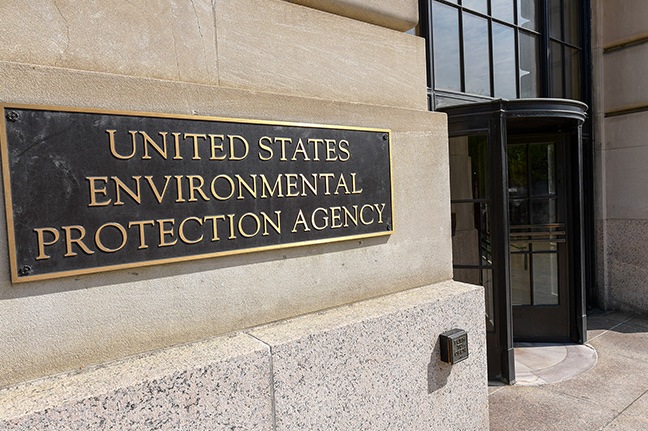
- Details
- By Chez Oxendine
- Energy | Environment
Roughly $7 billion for building solar renewable energy projects has been released from a federal funding freeze first issued in January, including more than $500 million earmarked for tribal communities.
The Solar for All (SFA) Program is part of the $27 billion Greenhouse Gas Reduction Fund established under the Biden administration by the Inflation Reduction Act. Funding for the SFA program, which aims to build solar projects in underserved communities, was frozen in January following a memo from the U.S. Office of Management and Budget. That freeze was lifted Tuesday, according to a statement from the U.S. Environmental Protection Agency (EPA).
“EPA worked expeditiously to enable payment accounts for [Infrastructure Investment and Jobs Act] and [Inflation Reduction Act] grant recipients, so funding is now accessible to all recipients,” the EPA wrote in a statement.
Tribal Business News reached out to tribal-focused grant recipients under the Solar for All program, and several confirmed access to the funding and the federal website where they submit for reimbursements. Six tribal-focused organizations were selected to receive $504 million in Solar for All funding in April 2024.
Among the recipients were the Northern Plains Tribal Coalition ($135.6 million), GRID Alternatives' National Tribal Program ($62.5 million), Midwest Tribal Energy Resources Association ($62.3 million), Tanana Chiefs Conference ($62.5 million), Hopi Utilities Corporation ($25.1 million) and Oweesta Corporation ($156.1 million).
“This is a once-in-a-generation award that will begin to transform how tribes achieve energy sovereignty,” Cody Two Bears, executive director of Indigenized Energy and member of the Standing Rock Sioux Tribe, said when the funding was first announced.
Additionally, the Washington State Department of Commerce, which received a $156 million award, plans to set aside a percentage of its funds for tribal projects. A spokeswoman with the department confirmed the money was available to the department as recently as last week.
The funding supports everything from capacity building and workforce development efforts to installation and maintenance for new projects.
Six tribes in the Upper Midwest completed workforce development training in Jan. 2025, marking the first tribal projects under the SFA program before the funding freeze. The training, which paired California-based Indigenized Energy and South Dakota-based Red Cloud Renewables, prepared 30 Indigenous participants from the Chippewa Cree, Northern Arapaho, Northern Cheyenne, Oglala Sioux, Rosebud Sioux and Yankton Sioux tribes. Six trainees have since started full-time positions in the solar industry.
While Solar for All is unfrozen for the time being, the remaining $20 billion has been subjected to intensive “review” under new EPA administrator Lee Zeldin. That money supported so-called “green bank” programs, split between the $14 billion National Clean Investment Fund (NCIF) and the $6 billion Clean Communities Investment Accelerator (CCIA.) Both programs aimed to support financing green energy projects, including more than $1.5 billion was headed to Indian Country.
Those funds were frozen Feb. 18, according to media reports. Zeldin initiated multiple investigations through the FBI, the Justice Department and EPA’s acting inspector general, despite a top federal prosecutor’s determination that evidence was insufficient to justify a criminal probe. Legal experts have questioned the administration's basis for freezing the accounts.
One of the finance organizations formed under the NCIF, Climate United, has since demanded to know the EPA’s reasoning for freezing the funds. A New York Times report notes Climate United is struggling to make payroll and keep money available for project developers as a result of the freeze.
“These relationships take many months to build and are in jeopardy if funding freezes continue,” said Brooke Durham, a Climate United spokeswoman speaking to the New York Times.
Brian Edwards provided reporting.
